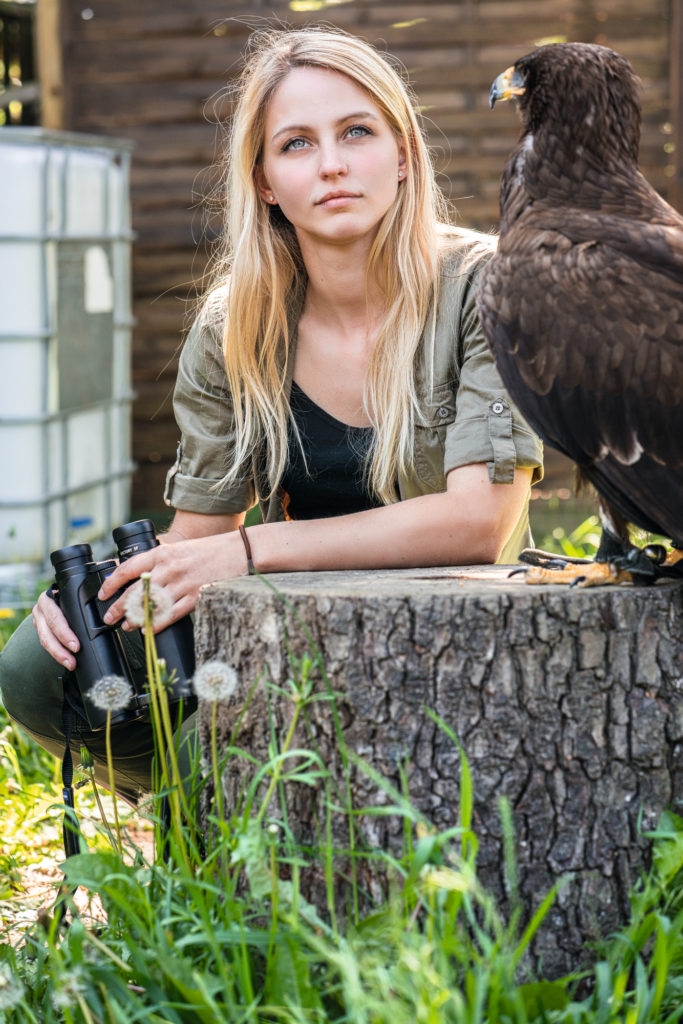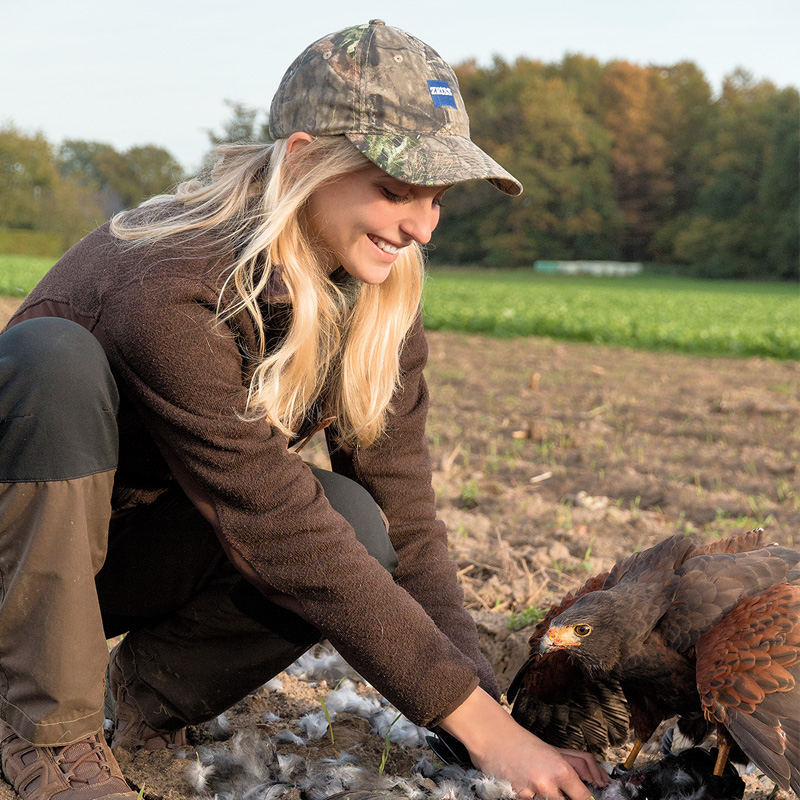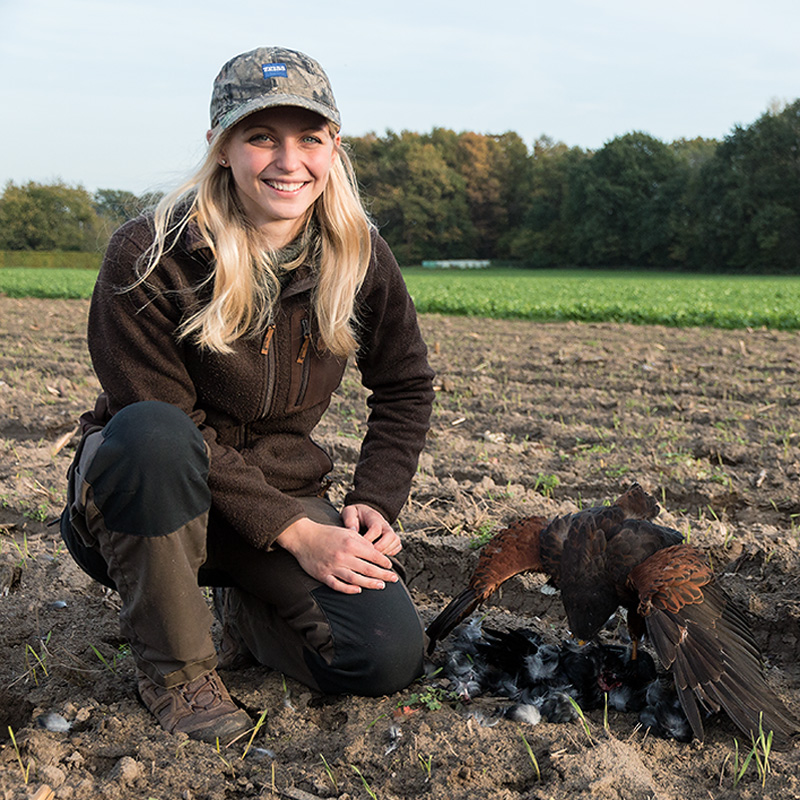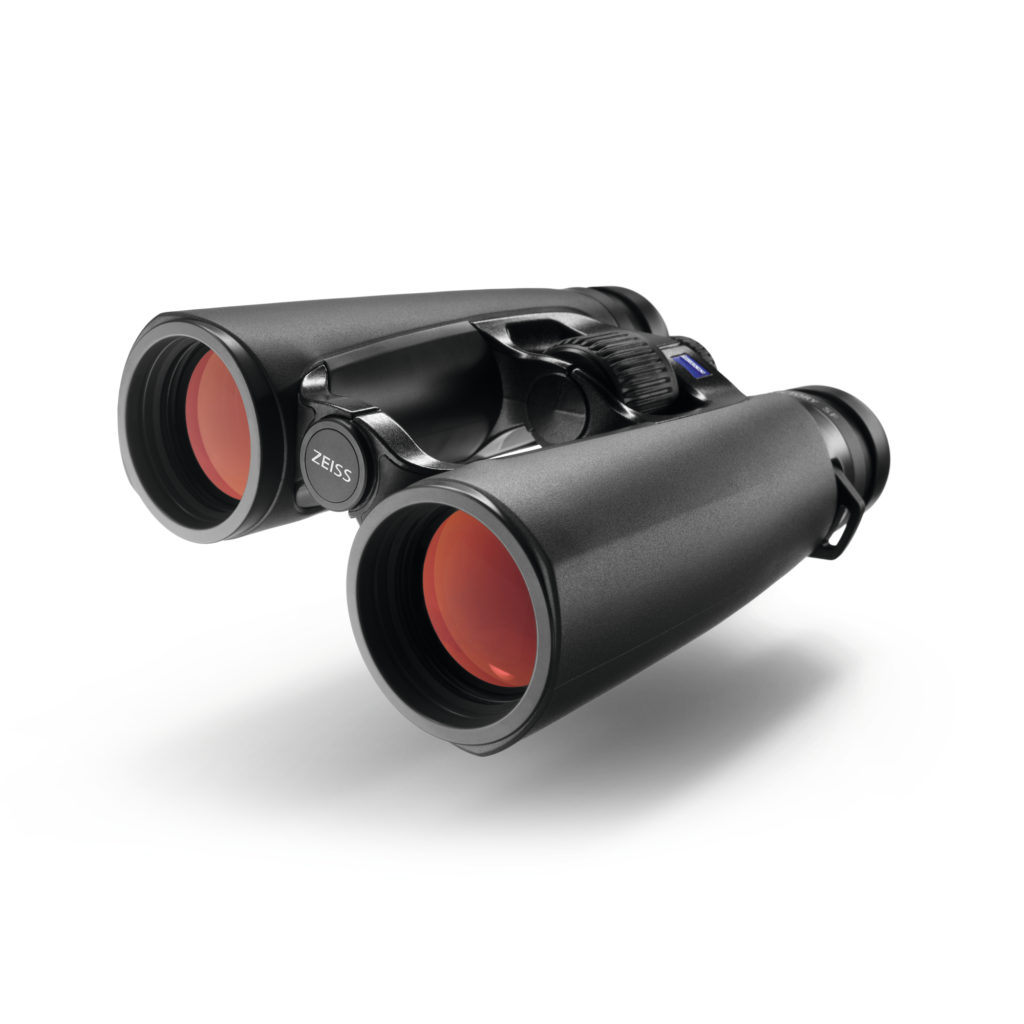An interview with Sandra Jung, Germany’s youngest self-employed falconer
How did you get involved in falconry?I actually got into falconry by chance. Back when I was 16, a friend took me to a show featuring birds of prey. I was hooked by these fascinating creatures from the moment I got there. For many years, I helped out at the same falconry in my free time.
What does falconry mean to you?These days, falconry has become a cornerstone of my life. It might sound corny, but I live for falconry. My work and my free time are devoted to birds of prey, and I’m completely okay with this. I couldn’t imagine a life without these animals, and I really hope that things continue this way.
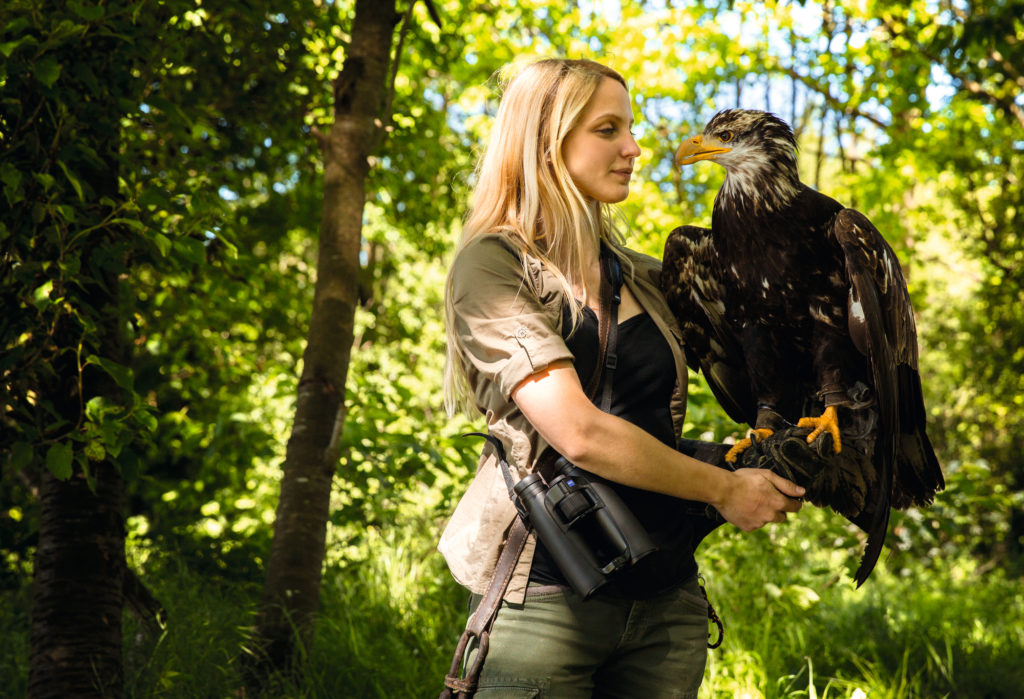
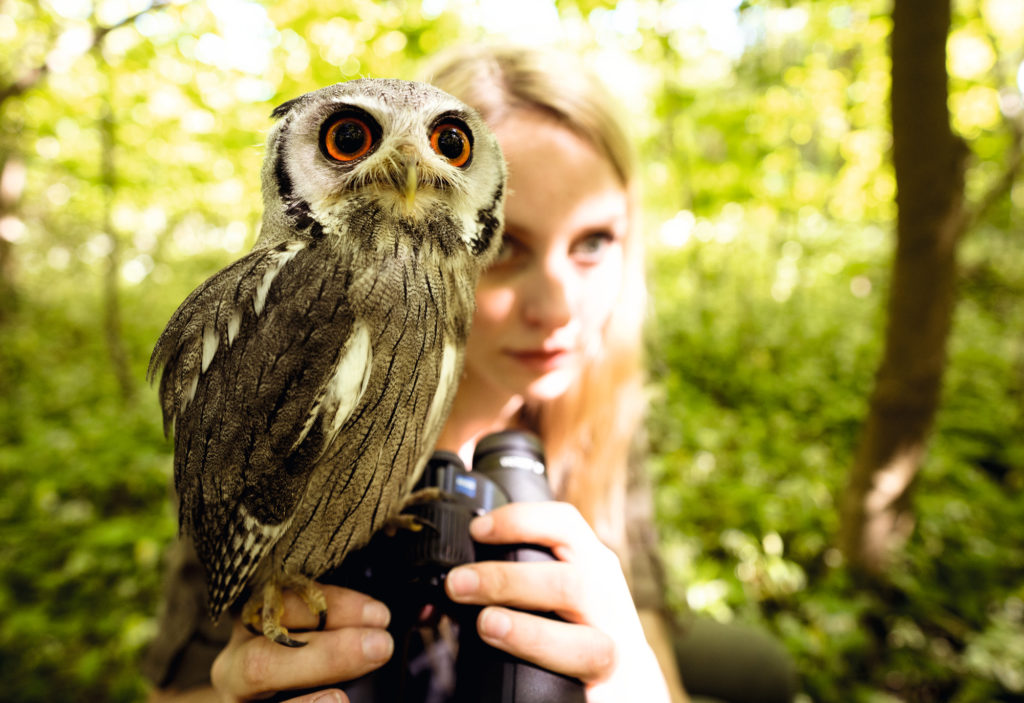
Why did you decide to write a book? The publisher approached me. I myself would never have dreamed that there would be so much interest in my life’s story. When writing, it was important to me to provide a positive and comprehensive image of falconry without getting too bogged down in the details so that the book would appeal to those starting out as falconers as well as people completely unfamiliar with this field. I think my book encourages the reader to follow their dreams and believe in themselves.
What’s the book about? The book follows my journey, starting with my first contact with these wonderful animals and continuing all the way to the falconry I run today. I describe the highs and lows – life almost never leads you down a straight path – and emphasize first and foremost that you should stay true to yourself and always follow your heart.
Is it possible to see you and your birds in person?Of course. The falconry at the magnificent Greifenstein Castle near Saalfeld in eastern Germany is open to the public from April through October.
What connection do you see between hunting and falconry?I hunt with my gun as well as with birds. Hunting is a welcome change to all the hard work during the high season. So in winter, it’s all about relaxing with the golden eagle at the falconry. Then there’s just me and the bird – with no one watching and no expectations. Still, I know how to enjoy the tranquility when stalking game throughout the year, giving me a chance to relax and take a deep breath. Out in the forest or the field, time passes more slowly. These breaks are certainly welcome.
What do you hope to do in the future?Of course, I hope to keep doing this job for many years to come. I also really want all the animals to stay happy and healthy and would like spectators to continue to come visit us at Greifenstein Castle.
